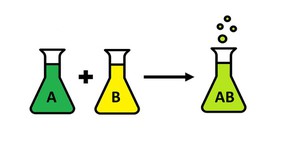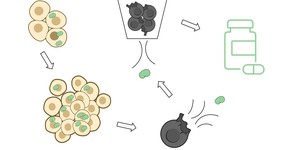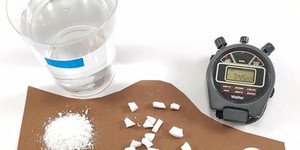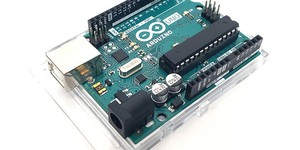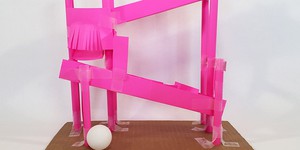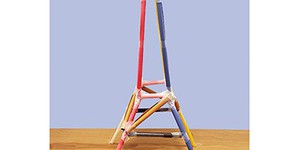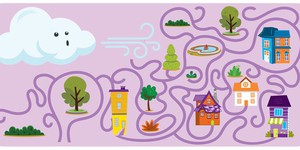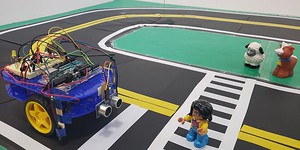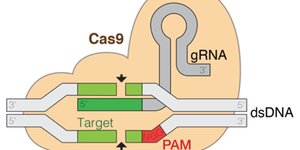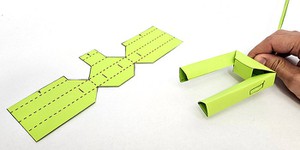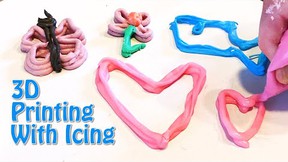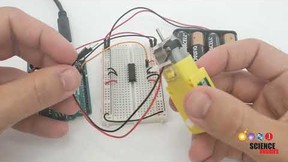Ninth Grade Lesson Plans (68 results)
Science Buddies'
ninth grade science projects are the perfect way for
ninth grade students to have fun exploring science, technology, engineering, and math (STEM). Our
ninth grade projects are written and tested by scientists and are specifically created for use by students in the
ninth grade. Students can choose to follow the science experiment as written or put their own spin on the project.
For a personalized list of science projects, ninth graders can use the Science Buddies Topic Selection Wizard. The wizard asks students to respond to a series of simple statements and then uses their answers to recommend age-appropriate projects that fit their interests.
|
Select a resource
Sort by
|
Lesson Plan
Grade: 9th-12th
10 reviews
This lab discusses types of reactions and replaces traditional reaction experiments involving chemicals such as lead (II) nitrate, barium chloride, and silver nitrate with greener alternatives. This lab is designed to challenge students to identify types of chemical reactions and distinguish between those that use safer, less hazardous chemicals and those that are more dangerous. Students will make a choice as to which reaction they will perform using the 12 Principles of Green Chemistry. They…
Read more
Lesson Plan
Grade: 9th-12th
1 review
In this lesson, students will employ the enzymatic decomposition reaction of hydrogen peroxide to investigate how chemical reactions are affected by enzymes and different substrate concentrations. Students will be challenged to control the rate of the reaction by adjusting the amount of substrate and thus changing the catalase activity. Foam production, created by the enzymatic breakdown of hydrogen peroxide into water and oxygen, will function as a proxy for the reaction rate. Based on their…
Read more
NGSS Performance Expectations:
New
Lesson Plan
Grade: 6th-9th
In this lesson plan, students will model the complex biologic manufacturing process. First, they will model the cellular expansion process that occurs in a bioreactor. Then, students will lyse the cells to isolate the proteins from the dyed cell debris. Lastly, they will model the advanced filtration process to purify proteins so they can be used as medicines.
Read more
NGSS Performance Expectations:
Lesson Plan
Grade: 9th-12th
4 reviews
How does surface area affect the speed of a chemical reaction? Let your students find out in this sizzling lesson plan! In this project, they will explore this correlation by crushing Alka-Seltzer® tablets into different sized particles and measuring how long it takes for them to dissolve in water.
Read more
NGSS Performance Expectations:
Lesson Plan
Grade: 6th-12th
9 reviews
This lesson plan will introduce your students to physical computing: the process of building circuits and programming a microcontroller (an Arduino UNO®) to interact with them. The lesson is broken into seven activities that will walk your students through the basics of setting up the Arduino and interacting with circuit parts like LEDs, buttons, and resistors. This introductory material will help prepare your students for more advanced Arduino projects.
Read more
Lesson Plan
Grade: 9th-12th
4 reviews
Add a twist to a classic activity with this fun lesson plan. Your students will design and build a ball run for a ping pong ball using nothing but paper and tape. Their goal is to make the slowest ball run possible. How long can they make it take for the ball to go through their ball run? The 2022 competition is over, but you can see what students built and learn about the winners on the 2022 Engineering Challenge summary page.
Teachers, note that
elementary and
middle school
…
Read more
NGSS Performance Expectations:
Lesson Plan
Grade: 9th-12th
6 reviews
Teach your students about the engineering design process with this fun lesson plan. The lesson is based on the real-world challenge of designing an observation tower. Can your students maximize the height of the tower while minimizing the amount of material needed to construct it? Teachers, note that elementary and middle school versions of this lesson plan are also available. The 2021 Engineering Challenge is over, but you can still try out this fun challenge with your students, or check…
Read more
NGSS Performance Expectations:
Lesson Plan
Grade: 4th-12th
2 reviews
Students will explore the elements by designing a wind maze, a device that can direct the wind along a specific path.
Learning Objectives
Students will:
Design and test a wind maze.
Consider how to direct the wind down an intended path by creating bends in the maze.
Use observations from their tests to compare solutions and iterate on their designs.
NGSS Alignment
This lesson helps students prepare for these Next Generation Science Standards Performance Expectations:
…
Read more
Lesson Plan
Grade: 8th-12th
2 reviews
This eight-part lesson will guide you through building and programming Arduino-controlled autonomous cars with your students. Each part contains a detailed step-by-step video and a supplemental lesson plan PDF with learning objectives, assessment opportunities, and appendices with circuit diagrams and example code. You can present the material yourself or have students follow along with the videos and pause to work on their autonomous cars.
Read more
NGSS Performance Expectations:
Lesson Plan
Grade: 6th-12th
5 reviews
In this lesson plan, students will take a closer look at the most recent developments in gene editing. Specifically, they will learn about the CRISPR technology using various interactive simulations and other resources. Based on their gained knowledge, students will create a model of the CRISPR-Cas9 components and create a stop-motion animation video of the molecular mechanism of CRISPR-Cas9.
Remote learning adaptation:
This lesson plan can be conducted remotely. Students can work…
Read more
NGSS Performance Expectations:
Lesson Plan
Grade: 6th-12th
4 reviews
When your students think of robots, they probably think of materials like metal or plastic—but what about paper? In this lesson plan, your students will learn to make robotic parts from readily available classroom materials. Optionally, they can apply the engineering design process to improve the design or come up with their own designs.
Read more
|


